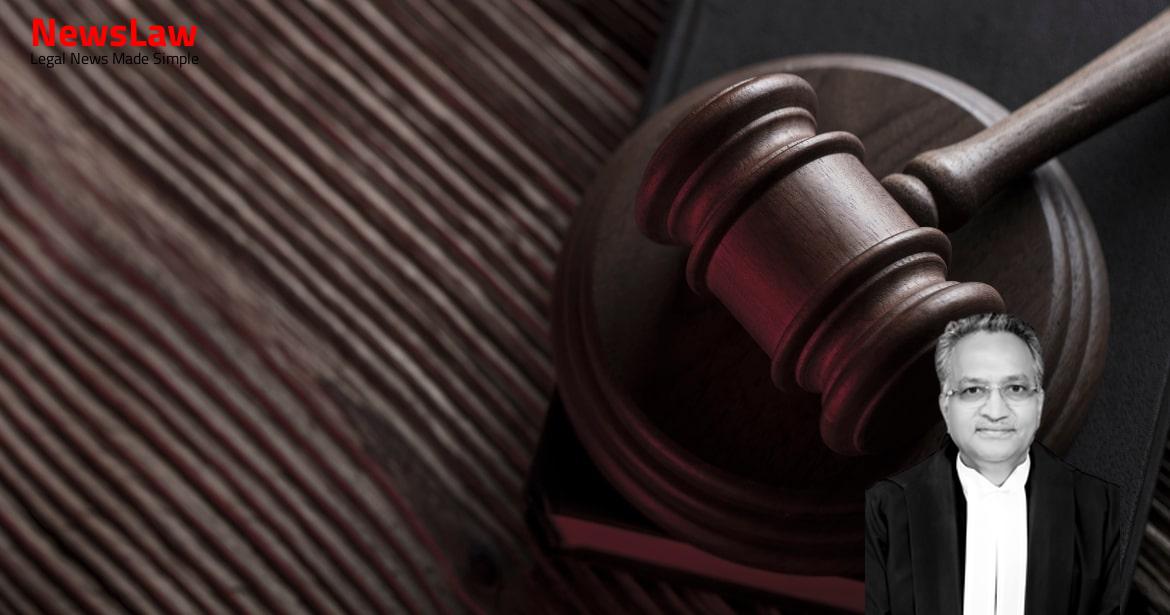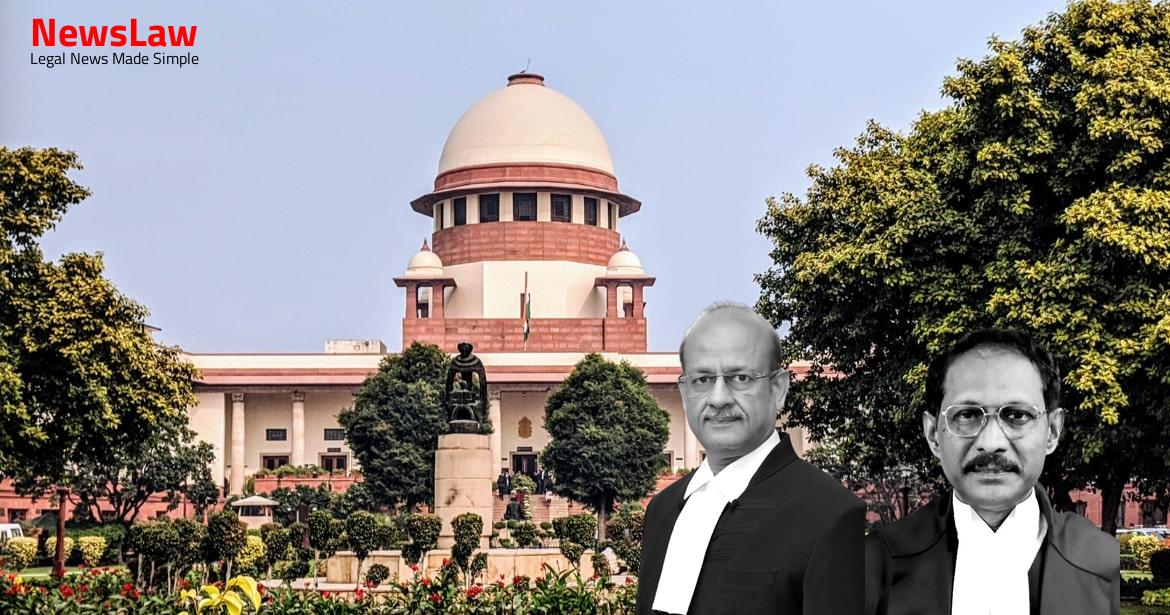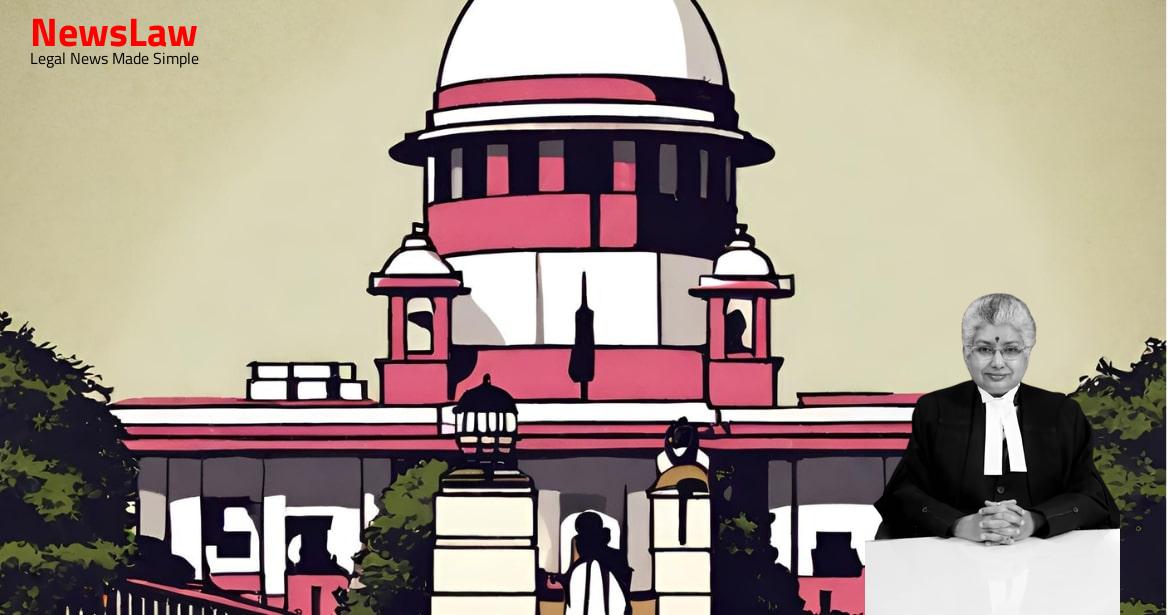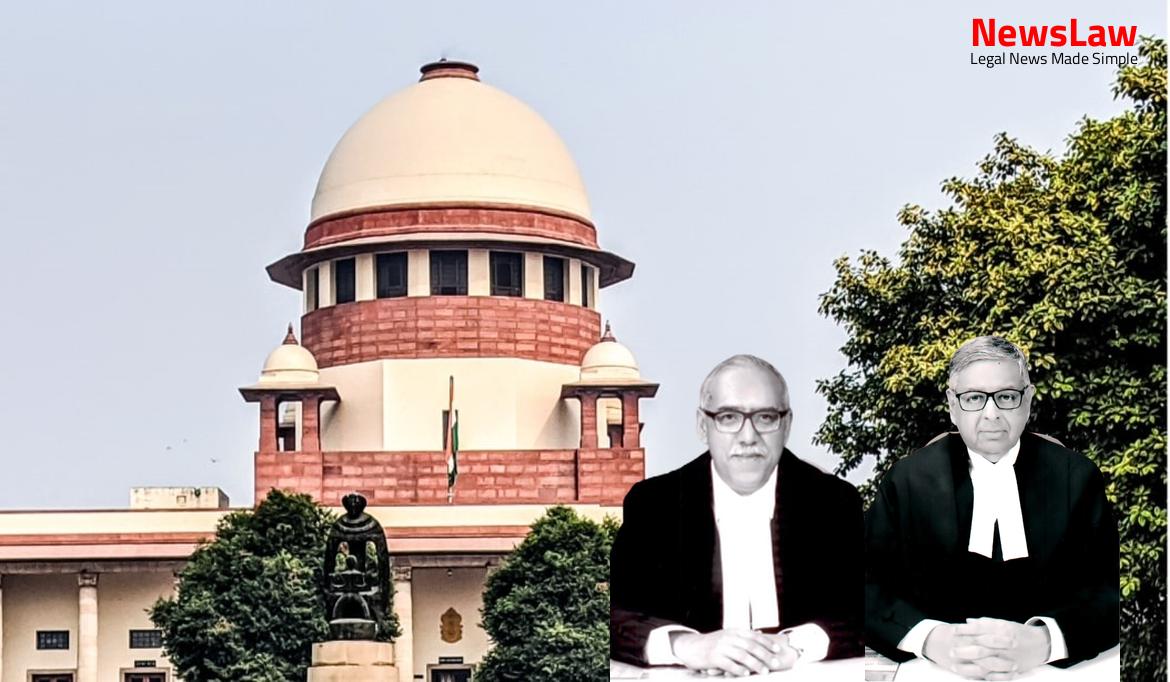A batch of cases before the Supreme Court involves legal challenges to the provisions of the Prevention of Money Laundering Act, focusing on the Act’s interpretation and validity. The Court has dismissed certain arguments and raised crucial legal questions about the application of the Act regarding predicate offences and properties acquired before the commission of an offence under the PMLA. Stay informed about this complex legal analysis and its implications on financial crime legislation.
Facts
- Various cases have been filed challenging the constitutional validity and interpretation of provisions under the Prevention of Money Laundering Act, 2002.
- Special leave petitions have been filed against orders of High Courts/subordinate Courts rejecting bail/quashing/discharge pleas.
- These cases are now before the Supreme Court as a batch of cases.
- Separate writ petitions have been filed to challenge provisions of the 2002 Act, all of which have been tagged and heard together.
- The challenges are limited to the provisions of the Prevention of Money Laundering Act, 2002.
Also Read: Analysis of Compensation Method in Land Acquisition Case
Issue
- Question of whether authorities can proceed against an accused when the predicate offence predates the addition of the offences to the Schedule of the PMLA was raised.
- Question of whether it was within the Parliament’s power to nullify the effect of a prior judgment declaring certain conditions unconstitutional.
- Examination of whether authorities can proceed when the predicate offence and projecting predate the enactment of the PMLA.
- Focus on the challenge to relevant provisions of the PMLA as a legal question raised by the parties.
- Contemplation of whether authorities can take action against properties acquired or projected before the commission of an offence under the PMLA.
Also Read: Interplay of State and Central Legislation on Vehicle Permits and Taxes
Arguments
- Provisional attachment order is submitted to be final.
- No person can claim any right, title, or interest to the proceeds of crime or property involved in money-laundering.
Analysis
- Contentions not addressed in this judgment will be decided in separate proceedings.
- Executive is urged to take corrective actions promptly.
- Argument on proportionality of punishment in relation to scheduled offense is dismissed.
- Petitioners have valid concerns about vacancies in the Appellate Tribunal.
Decision
- Parties are relegated before the High Court for consideration of relief of discharge/bail/quashing
- Parties allowed to pursue all contentions except validity and interpretation of provisions already dealt with
- Interim relief to continue for four weeks
- Cases delinked and to be heard separately or with appropriate Bench
- Private parties have liberty to pursue further reliefs before the appropriate forum
- Transferred cases disposed of accordingly with liberty to pursue proceedings before High Court
- Registry directed to list cases separately before appropriate Bench
- Interim relief granted in petitions to continue for four weeks with liberty to parties to mention for early listing
- Disposal of writ petitions based on validity and interpretation of provisions of 2002 Act
- List of specific writ petitions/transferred cases/appeals/petitions numbered 152/2016 onwards.
Case Title: VIJAY MADANLAL CHOUDHARY Vs. UNION OF INDIA (2022 INSC 757)
Case Number: SLP(Crl) No.-004634-004634 / 2014



